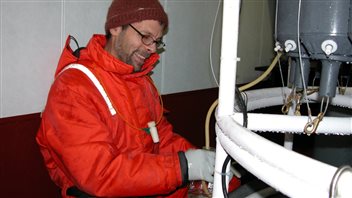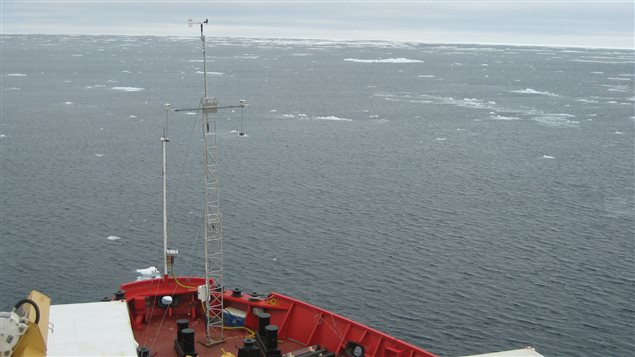The world’s oceans absorb carbon dioxide emitted from burning fossil fuels, making them more acidic and less hospitable to micro-organisms that support the marine food chain, says Alfonso Mucci, a professor of geochemistry and oceanography at McGill University.
Ultimately, acidification could mean ‘no food… for us’
As the oceans become more acidic, creatures are less able to make shells out of calcium carbonate and they either die, fail to grow and reproduce or are more vulnerable to predators. If that happens, “there goes a large fraction of the micro-organisms that sustain the food chain,” says Mucci. “And if the food chain collapses, then there’s no food for the higher organisms—the fish, the mammals, and us.”
Listen
The more carbon dioxide there is in the air, the more acid the oceans will become. The Intergovernmental Panel on Climate Change projects that unless action is taken, carbon dioxide in the atmosphere will almost double by the end of the century. This could increase the acidity of the oceans by as much as 150 per cent, says Mucci.
Cut carbon emissions, sequester the rest, says scientist
There are reports of change already occurring. Some oyster producers say there is a decline in productivity, there have been die-offs of micro-organisms in some areas, there are reports of jellyfish multiplying dramatically and some coral reefs are dying.
The solution, says Mucci, is to reduce carbon emissions and to capture and bury what is emitted underground.








For reasons beyond our control, and for an undetermined period of time, our comment section is now closed. However, our social networks remain open to your contributions.